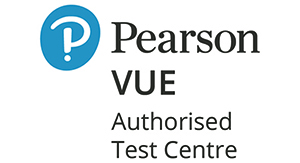There are a lot of reasons why an organisation should or should not migrate from older on-premises versions of Office to 365. Features like OneDrive, SharePoint and Skype for Business make it a particularly appealing offering and should certainly be part of an organisation’s calculus when determining whether or not to make the switch.
But these and additional cool features alone should not be the only motives for migrating. Rather, an organisation should ruminate how these features interpret to better productivity and more predictable and sometimes lower costs. Here are the reasons why users have to migrate to office 365.
Productivity Gains – There are three key features of Office 365 that assist you with a more productive workforce.
First is cross-platform support letting users to access their documents from PCs, iOS, Macs and Android devices. This is imperative because more and more organisations are either dispensing or allowing employees to use their individual devices that aren’t just PCs.
Second is anytime and anywhere access to work produced with Office 2016 products. This is important because it gives employees speedy and easy access to work they’ve generated with Office 365 nonetheless of their location.
Third are the sharing and collaboration features constructed in to Office 365. Users can track fluctuations to documents and spreadsheets through an organisation without many different versions being generated.
Predictable and Manageable Costs – In the past, many organisations picked for one-off purchases of Office products as they employed new employees. What happens if the employee sprigs or the company downsizes? Microsoft definitely won’t allow you to return your software for a refund. It becomes a dejected cost. Migrating to the Office 2016 suite in Office 365 stretches an organisation the flexibility to scale up or down with an expected cost structure. Pay for what you use. The same pertains to individual Client Access Licensing costs for SharePoint, Exchange or Skype for Business. Rather than pledging to expensive licensing on extensive term contracts with Microsoft, for those organisations that chose volume-licensing agreements with Software Assurance that comes from Microsoft, Office 365 compromises an easy transition to a more flexible arrangement with a common cost structure.
It’s Always Up-to-Date – Office 365 subscribers continually have access to the latest version of Office products nevertheless of deployment type. In the past, admittance to new versions of Office involved the wholesale purchase of the latest licenses or the maintenance of Software Assurance agreements from Microsoft.
Logitrain offers a rang of Microsoft Courses. Learn more.





































































